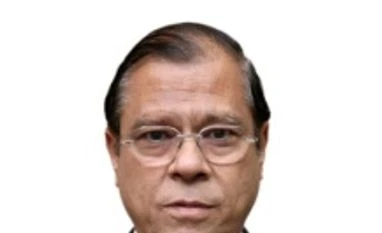The budget should lower excise duty on man-made fibre (MMF)/filaments from the present 12% to 4% to boost growth. The reduction of excise duty at the primary stage would help across the entire value chain to increase consumption right from the fibre stage to the garment stage thus resulting in more revenues for the government.
Similarly, customs duty should be reduced on purified terephthalic acid (PTA) and monoethylene glycol (MEG) to zero percent and increase the customs duty on filaments, polyester staple fibre (PSF) and chips to 10%.
As the manufacturers in certain segments of industry like polyester fibre are unable to utilise the import duty credit against the duty on output, it is therefore requested that similar facility of refund should also be allowed to manufacturers who are unable to utilise the special additional duty (SAD) credit of duty. We suggest that SAD should be 2%.
Further to reinforce our demand for parity in duties, we would like to highlight that in our neighbouring countries like China, Pakistan, Indonesia, Thailand and Turkey there is no difference in duties on man-made fibre and cotton fibre. Hence, there is a need for a fibre neutral policy.
It is a request to the government that all above submissions may kindly be considered for their incorporation in the Union Budget 2015-16 so that polyester fibre/filament yarn industry can achieve its full capacity utilisation, tap the vast potential of man-made fibre markets that exist globally, compete with its Asian counterparts in terms of exports, achieve the Vision Target of $ 650 billion by 2024-25 set by the Textile Ministry, add to the country’s GDP and generate more employment for the masses. This will, in turn, be instrumental in healthy socio-economic development of the country and will fortify and fulfil the visionary slogan ‘Make in India’ in the true sense.
__________________________________________________________________________________________________________
O P Lohia is the chairman & managing director of Indo Rama Synthetics India Limited
Similarly, customs duty should be reduced on purified terephthalic acid (PTA) and monoethylene glycol (MEG) to zero percent and increase the customs duty on filaments, polyester staple fibre (PSF) and chips to 10%.
As the manufacturers in certain segments of industry like polyester fibre are unable to utilise the import duty credit against the duty on output, it is therefore requested that similar facility of refund should also be allowed to manufacturers who are unable to utilise the special additional duty (SAD) credit of duty. We suggest that SAD should be 2%.
Further to reinforce our demand for parity in duties, we would like to highlight that in our neighbouring countries like China, Pakistan, Indonesia, Thailand and Turkey there is no difference in duties on man-made fibre and cotton fibre. Hence, there is a need for a fibre neutral policy.
It is a request to the government that all above submissions may kindly be considered for their incorporation in the Union Budget 2015-16 so that polyester fibre/filament yarn industry can achieve its full capacity utilisation, tap the vast potential of man-made fibre markets that exist globally, compete with its Asian counterparts in terms of exports, achieve the Vision Target of $ 650 billion by 2024-25 set by the Textile Ministry, add to the country’s GDP and generate more employment for the masses. This will, in turn, be instrumental in healthy socio-economic development of the country and will fortify and fulfil the visionary slogan ‘Make in India’ in the true sense.
__________________________________________________________________________________________________________
O P Lohia is the chairman & managing director of Indo Rama Synthetics India Limited
)